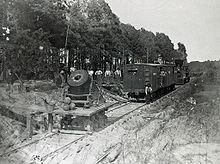There is a second attempt to drive Old Dixie down, the first one is what happened during the war between the states and now the second is all the Social Justice warriors going after all that "is Southern" from statues, flags and monuments. Like they want to scrub the history books clean and imprint their version of events.
"The Night They Drove Old Dixie Down" is a song written by Robbie Robertson and originally recorded by the Canadian-American roots rock group the Band in 1969 and released on their eponymous second album. Levon Helm provided the lead vocals. The song is a first-person narrative relating the economic and social distress experienced by the protagonist, a poor white Southerner, during the last year of the American Civil War, when George Stoneman was raiding southwest Virginia. Frequently appearing on lists of the best rock songs of all time, it has been cited as an early example of the genre known as roots rock.
Joan Baez recorded a version of the song that became a top-five chart hit in late 1971.
The song was written by Robbie Robertson. According to Rob Bowman's liner notes to the 2000 reissue of the Band's second album, The Band, it has been viewed as a concept album, with the songs focusing on peoples, places and traditions associated with an older version of Americana. The lyrics tell of the last days of the American Civil War, portraying the suffering of the protagonist, a poor white Southerner.
Robertson stated that he had the music to the song in his head but at first had no idea what it was to be about. Then the concept came to him and he did research on the subject, relying heavily on the Dunning School theories of the period. Levon Helm, a native of Arkansas, stated that he assisted in the research for the lyrics. In his 1993 autobiography, This Wheel's on Fire, Helm wrote, "Robbie and I worked on 'The Night They Drove Old Dixie Down' up in Woodstock. I remember taking him to the library so he could research the history and geography of the era and make General Robert E. Lee come out with all due respect."
Dixie is the historical nickname for the states making up the Confederate States of America. The first lines of the lyrics refer to one of George Stoneman's raids behind Confederate lines attacking the railroads of Danville, Virginia at the end of the Civil War in 1865:
Virgil Caine is the name, and I served on the Danville train,The Band frequently performed the song in concert, and it is included on the group's live albums Rock of Ages (1972) and Before the Flood (1974). The song was included in the concert on Thanksgiving Day 1976 which was recorded in the documentary film about the concert, The Last Waltz, as well as the soundtrack album from the film.
Till Stoneman's cavalry came and tore up the tracks again...
The last time the song was performed by Helm was in The Last Waltz (1976). Helm refused to play the song afterwards. Although it has long been believed that the reason for Helm's refusal to play the song was a dispute with Robertson over songwriting credits, according to Garth Hudson it was due to Helm's dislike for Joan Baez's version.
It was #245 on Rolling Stone magazine's list of the 500 greatest songs of all time. Pitchfork Media named it the forty-second best song of the Sixties. The song is included in the Rock and Roll Hall of Fame's "500 Songs that Shaped Rock and Roll" and Time magazine's All-Time 100.
Ralph J. Gleason (in the review in Rolling Stone (U.S. edition only) of October 1969) explains why this song has such an impact on listeners:
Nothing I have read … has brought home the overwhelming human sense of history that this song does. The only thing I can relate it to at all is The Red Badge of Courage. It's a remarkable song, the rhythmic structure, the voice of Levon and the bass line with the drum accents and then the heavy close harmony of Levon, Richard and Rick in the theme, make it seem impossible that this isn't some traditional material handed down from father to son straight from that winter of 1865 to today. It has that ring of truth and the whole aura of authenticity.
The most successful version of the song was released by Joan Baez in 1971. It peaked at number three on the Billboard Hot 100 chart in the US in October that year and spent five weeks atop the easy listening chart. Billboard ranked it as the No. 20 song for 1971. The version reached number six in the pop charts in the UK in October 1971. The song became a Gold record.
Cover Art by Kris Kristofferson
The Baez recording had some changes in the lyrics. Baez later told Rolling Stone's Kurt Loder
that she initially learned the song by listening to the recording on
the Band's album, and had never seen the printed lyrics at the time she
recorded it, and thus sang the lyrics as she had (mis)heard them. In
more recent years in her concerts, Baez has performed the song as
originally written by Robertson.


Yea! One I remember, and yes, they actually did do the research to get it right! :-)
ReplyDelete